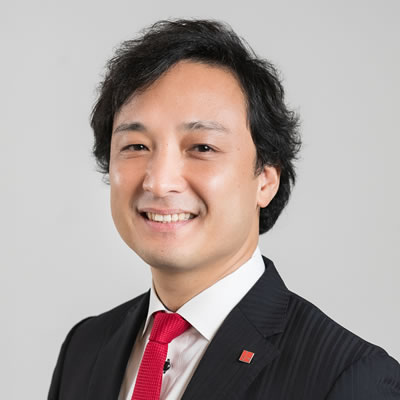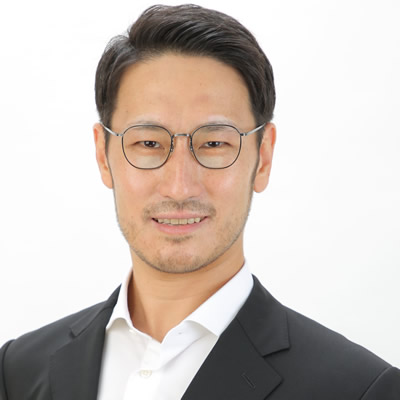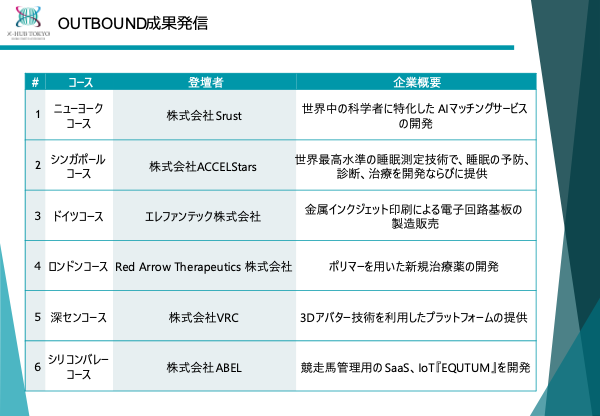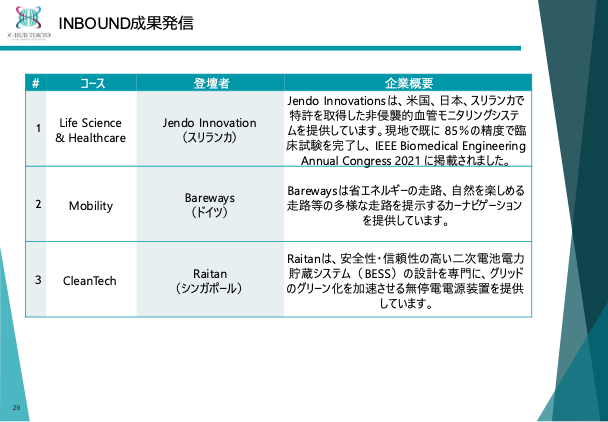X-HUB TOKYO, which supports overseas expansion of Tokyo-based startups, held X-HUB TOKYO 2022 Wrap-up Event ” Strategies and Expansion for Startups to gain Global Competitiveness” on March 20.
The event featured an overview of X-HUB TOKYO, a keynote speeche, and a speech by a venture capitalist. Mr. Yukihiro Maru, founder of Leave a Nest. Co., and one of Asia’s largest venture ecosystem organizers, spoke on “The Significance of Domestic Startups Going Overseas and Reasons Why Overseas Startups Want to Come to Japan.” and introduced examples of advanced startups in various fields thoese are expanding overseas.
Toshihiko Honkura, a Partner of i-nest capital, inc., followed with a speech titled “How to Grow into Global Startups,” in which he shared points to keep in mind regarding fundraising and business collaboration from a venture capital’s (VC) perspective, key points for establishing overseas offices, and how to manage multinational organizations.
In the latter half of the event, startups from Japan and abroad who participated in the various programs of X-HUB TOKYO in 2022 presented their outcomes. They talked about the learnings and insights they gained from the programs from their respective standpoints, as well as the attractiveness and outcomes of this project.
The Significance of Domestic Startups Going Overseas and Why Foreign Startups Want to Come to Japan

Founder, Group CEO, Leave a Nest. Co., Ltd.
Yukihiro Maru
- First, we would like to ask Mr. Yukihiro Maru, Founder, Group CEO of Leave a Nest. Co., Ltd., about his business and the significance of overseas expansion for Japanese startups.
-
Since our establishment in 2002, we have been involved in science education and start-up support. Currently, we have subsidiaries overseas in Singapore, The Philippines, Malaysia, the United Kingdom, and the United States. With about 300 employees in 29 group companies, we focus on the four fields of education, human resources, research, and startups, and together with our partners, we promote projects to support the field.
Since 2014, I, myself, have been operating a problem-solving acceleration program. It has now grown into one of the Asia’s largest platforms for deep tech and deep issues.
We have connected with more than 1,000 startups from around the world over the past eight years until 2022, and what we have strongly felt is that the technology owned by Japanese companies has a very high potential to solve social issues in Southeast Asia. I believe that meeting startups who are active overseas and exchanging opinions with them will give us realistic experiences of the social issues they face locally.
As you all know, ASEAN has a population of 650 million, and with an average age of 29.1 years, it is a very young region that will enjoy a demographic dividend in the future. On the other hand, it faces various social issues such as environmental destruction and loss of biodiversity due to rapid urbanization. If Japanese companies can solve these problems, they have the potential to grow into unicorns at a stroke.
- Please tell us about some specific examples of overseas expansion based on your experience in supporting a variety of startups.
-
First of all, let me introduce Challenergy (Sumida, Tokyo), which is involved in wind power generation. The company developed a wind turbine generator that can generate power even in typhoons and other strong winds without stopping rotation, conducted demonstration tests in the Philippines where typhoons often come, and established a joint venture company there. Since approximately 8 million people in the Philippines still live in areas that are not electrified, Challenergy aims to solve these issues and the world’s energy problems with its generators. The company is also now beginning to attract attention in Japan as an emergency power source in the event of a disaster.
Other startups, such as MiCAN Technologies (Kyoto City) for regenerative medicine and Melody International (Takamatsu City) for telemedicine systems for pregnant women, are taking on local healthcare challenges through clinical trials with Southeast Asian universities.
In this way, the market for Japanese startups is expanding globally. Therefore, I hope that you will not create your services and businesses solely from your home country’s perspective, but rather form a global team with people from other countries from the very beginning.
While it has been a long time since people have been talking about the decline of Japan’s technological capabilities, I believe that Japan still possesses very high technological capabilities, and I have realized that Japanese culture is loved by people in Southeast Asia. In fact, there are many startups in Southeast Asia that would like to seek collaboration with Japanese companies that have high technological capabilities.
Japan is the only country where harmonious innovation, rather than disruptive innovation, can take place. I hope that all of you will actively expand overseas, continue to take on challenges, and experience the fun of being able to change the world.
How to Grow into Global Startups

Partner, i-nest capital, inc.
Toshihiko Honkura
- Next, we would like to ask Mr. Toshihiko Honkura, a Partner of i-nest capital, inc., about his business.
-
We are a venture capital firm that supports venture businesses that create new industries and solve social issues. The name “i-nest capital” was chosen to express our desire to be a place (nest) where innovators (entrepreneurs), investors (investors), and incubators (VCs) can all feel comfortable and secure.
In terms of investment areas, we have focused on the entertainment and lifestyle domain. We have also actively invested in cutting-edge technology fields originating from universities and have also focused on supporting startups that are looking to expand overseas.
- Having supported many Japanese startups aiming to expand overseas, what are some of the key points to consider when establishing overseas offices?
-
First of all, when establishing overseas offices, it is necessary to lead a diverse team with a firm axis. Managing a multinational organization is not a simple task, but it is important to always make decisions based on the same axis. Also, you should think carefully about what the purpose of establishing an overseas office is and how you will establish and operate the local structure within your company. Overseas expansion is both time-consuming and costly, so make sure to clearly organize the objectives and goals of your expansion.
Also, as a point to keep in mind when raising funds or entering into business alliances, keep in mind that the shareholder structure in some countries may be a hindrance to business development. Additionally, it is important to continue your efforts to get into the local community. The reality is that it is difficult to even make an appointment overseas without an introduction from someone. Therefore, make maximum use of introductions from local universities and professors with whom you are conducting joint research, as well as local networks such as lawyers and main banks.
What I try to keep in mind when discussing and negotiating business alliances overseas is to confirm the agenda at the beginning and always organize the conclusion at the end. And in doing so, using a whiteboard to organize the discussion has been very effective. When discussing with many people involved, it is easy for the discussion to go off in a different direction or become a “dogfight. If we can use the whiteboard to summarize each person’s understanding and organize where we are headed, it will lead to meaningful discussions.
Failures are bound to occur when expanding overseas, and more than anything else, things do not always go well when you are fighting “on the ground”. However, I believe that those who are on the frontlines are the ones who deserve praise. Let’s hit a home run together!
Benefits and outcomes of the OUTBOUND PROGRAM

-
X-HUB TOKYO’s OUTBOUND PROGRAM in 2022 was operated by the Japan External Trade Organization (JETRO) to support overseas expansion for startups in Tokyo seeking to expand overseas.
Six courses were offered: New York, Singapore, Germany, London, Shenzhen, and Silicon Valley. Working with global accelerators who are familiar with the ecosystems in each region, the program created opportunities for business partnerships and funding from investors, in addition to bootcamps and mentorings.
Six companies that participated in the OUTBOUND PROGRAM spoke at the event.
The first speaker was Kota Nozaki, the President of Srust (Chiyoda, Tokyo), a global skill-sharing matching platform specializing in research and development. The company participated in the New York course and recalled that “giving elevator pitches in English every week to guests from different backgrounds lowered the bar for communication and made it easier to convey the appeal of the business in a straightforward manner.
Aya Yamoto, the executive officer of ACCELStars (Kurume, Fukuoka), which aims to develop and offer sleep prevention, diagnosis, and treatment worldwide., continued to talk that the local networking was very useful. She said that “We participated in the Singapore course and were impressed by the detailed and practical nature of the entire program. We were able to connect with local research institutions and government officials, and we are now further examining how to adapt our current products to the local market.”
Takuya Miyazaki, the president of Red Arrow Therapeutics (Bunkyo, Tokyo), a drug discovery startup that develops a drug delivery system that delivers a protein that activates and proliferates immune cells in the body to affected areas such as cancer, said, “I participated in the London course. Through networking within the program, we made progress in joint development with overseas academia and with law firms to manage intellectual property, which helped us to clarify our own issues,” he recalled.
In addition, some participants said that the OUTBOUND PROGRAM helped them understand overseas markets and local cultures.
Satoshi Konagai, the COO of Elephantech (Chuo, Tokyo), which develops inkjet printing technology for metallic nanoparticles, said, “The mentorings we received from five local accelerators in Germany has increased the resolution of the market.
President and Representative Director Yingdi Xie participated in the Shenzhen course said, “Many local companies showed interest in our technology and services, and they highly evaluated the combination of our technology with Japan’s strengths in content creation and medical care. We feel it is important to understand the characteristics and needs of local businesses in order to collaborate with local companies and form global markets.
Finally, Hideaki Oshima, CEO of ABEL (Shinagawa, Tokyo), a developer of IoT devices attached to racehorses, commented, “Participating in the Silicon Valley course, I learned that overseas expansion is a prerequisite in the US. We have learned to have a mindset of “now, not someday we will expand overseas,” and we are now building an organization based on the premise of global expansion,” he shared.
Benefits and outcomes of the INBOUND PROGRAM

-
In 2022, X-HUB TOKYO implemented the “INBOUND PROGRAM,” an online program to support exchanges between overseas startups and Tokyo-based companies and startups in the three business domains of Life Science & Healthcare, Mobility, and CleanTech. In addition to mentoring by experienced business professionals and lectures on legal, market, and other issues necessary for startups to enter the Tokyo market, the program included business matching and networking with large companies, VCs, and startups in Tokyo, as well as pitch events.
Keerthi Kodithuwakku, CEO of Jendo Innovations (Sri Lanka), a healthcare solutions provider, commented, “We have been aiming to expand our business overseas since our establishment, and Japan seemed like a promising destination and a potential partner for us. Through the program, we learned that it is important to use methods appropriate for Japan in order to promote business in Japan. The program also provided us with concrete know-how on how to raise funds and introduced us to a number of business partners, which has led to great results.”
Raymond Tan, founder of Raitan (Singapore), a developer and manufacturer of urban battery energy storage systems, said, “Japan is prone to earthquakes and other natural disasters, so we participated in the program in the hope that our systems will help build a safe and reliable energy system. I felt that there are many similarities between the business practices of Singapore and Japan, and most importantly, the introduction of the law firm and the business firm company opened the door for us to enter the Japanese market. We will make the most of this experience in the future,” he summarized.
Moritz von Grotthuss, CEO and founder of Bareways (Germany), a developer of navigation systems for automobiles, commented, “I participated in the program because Japan has many large automobile manufacturers and I found it an attractive market. We learned that trust and credibility are the key to doing business in Japan. I was also able to make direct contact with the headquarters and business units of Japanese automakers, who are potential partners, which was a great benefit.”

